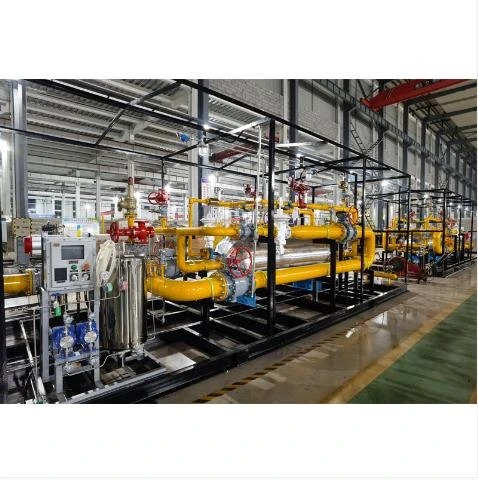
Dec . 04, 2024 09:26
Back to list
cng
The Promise of Compressed Natural Gas (CNG) as a Cleaner Energy Alternative
As the world grapples with the pressing need for sustainable energy solutions, the spotlight has increasingly turned towards natural gas, particularly Compressed Natural Gas (CNG). This versatile fuel has garnered attention due to its lower emissions compared to traditional fossil fuels, making it a vital player in the quest for cleaner transportation and energy production.
CNG is primarily composed of methane, a carbon compound that burns more cleanly than gasoline or diesel. When combusted, CNG produces significantly lower levels of harmful pollutants, including nitrogen oxides (NOx), particulate matter, and carbon dioxide (CO2). In fact, studies indicate that vehicles running on CNG can emit up to 30% less CO2 compared to their gasoline counterparts. This reduction is crucial in the fight against climate change, as CO2 is a primary greenhouse gas driving global warming.
.
Economic considerations also play a significant role in the shift towards CNG. Natural gas is often more cost-effective than gasoline and diesel, leading to lower operating costs for businesses and consumers alike. This affordability can make CNG an attractive option for fleet operators, public transport services, and even private vehicle owners. As the infrastructure for CNG refueling stations continues to grow, it becomes easier for consumers to access and utilize this cleaner alternative.
cng

However, the adoption of CNG is not without its challenges. One of the most significant obstacles is the initial investment required for CNG vehicles and the establishment of refueling infrastructure. While the long-term savings can justify the initial costs, many consumers and businesses remain hesitant to make the switch. Furthermore, the development of refueling stations is still lagging in many regions, limiting the practicality of CNG for widespread use.
Another consideration is the environmental impact of natural gas extraction itself. While CNG is a cleaner-burning fuel, the process of extracting natural gas can lead to methane leaks, which are potent greenhouse gases. It is essential that the industry implements effective measures to mitigate these emissions and ensure that the transition to CNG does not inadvertently contribute to climate issues.
Despite these challenges, the potential benefits of CNG are undeniable. Policymakers, industries, and consumers must work together to address the barriers to adoption, foster the development of infrastructure, and promote technological advancements in CNG vehicles. As the world moves towards a sustainable energy future, embracing CNG could be a significant step forward in achieving environmental goals while also enhancing energy security.
In conclusion, Compressed Natural Gas presents a promising alternative in our efforts to reduce greenhouse gas emissions and promote cleaner energy solutions. By lowering pollution levels, improving air quality, and offering economic advantages, CNG stands out as a viable option for the transition to a more sustainable energy landscape. Through collaboration and innovation, we can unlock the full potential of CNG, paving the way for a cleaner, greener future.
Latest news
-
Safety Valve Spring-Loaded Design Overpressure ProtectionNewsJul.25,2025
-
Precision Voltage Regulator AC5 Accuracy Grade PerformanceNewsJul.25,2025
-
Natural Gas Pressure Regulating Skid Industrial Pipeline ApplicationsNewsJul.25,2025
-
Natural Gas Filter Stainless Steel Mesh Element DesignNewsJul.25,2025
-
Gas Pressure Regulator Valve Direct-Acting Spring-Loaded DesignNewsJul.25,2025
-
Decompression Equipment Multi-Stage Heat Exchange System DesignNewsJul.25,2025

